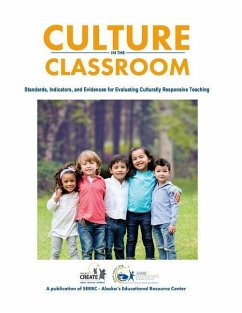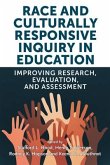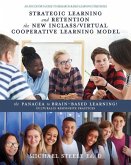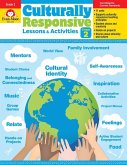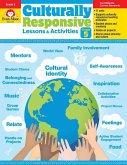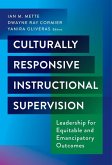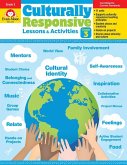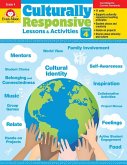Research has established the importance of cultural proficiency in improving students' academic and behavioral outcomes. Effective educators recognize that culture influences their actions as well as the thoughts and behaviors of their students (Nuri-Robins, Lindsey, Lindsey & Terrell, 2012). To ignore the impact of one's culture is to ignore the opportunities and challenges within the instructional teaching and learning environment. Culturally responsive teaching practices can assist educators in bridging differences in language, heritage, race, socio-economic status, trauma history, and ability. As a result, educators are realizing the need to intentionally focus on identifying effective methods for developing culturally responsive practices. Cultural proficiency is a mindset. When considered this way, it becomes an active, evolving journey that school leaders and educators undertake to cross philosophical barriers toward thoughtful and reflective school change. Systematic change has the best chance of creating and sustaining learning environments where students achieve and realize their full educational potential, and educators can self-reflect to ensure their beliefs and attitudes are free of bias. Culture in the Classroom: Standards, Indicators and Evidences for Evaluating Culturally Proficient Teaching was created for the purpose of self-reflections and continuous improvement by teachers, and for evaluation and feedback by evaluators. This document was developed as part of SERRC's Project CREATE to develop and support a teacher evaluation framework aligned with research-based instructional models such as Marzano's Art & Science of Teaching, and Danielson's Framework for Teaching. Project CREATE has elaborated on the Alaska Cultural Standards for Educators to develop indicators and evidences upon which teachers can be evaluated for culturally- responsive instruction. Culture in the Classroom complements other state standards by orienting the school community to its role in helping students become responsible, capable, and whole human beings. Culture in the Classroom emphasizes a strong connection between what students experience in school, and their lives out of school, by providing in-depth, experiential learning in real-world contexts. School Districts and personnel will find this publication useful in assisting educators in the teacher evaluation process. It provides examples of what culturally responsive instruction and practice could look like. Teachers will also find it helpful in planning for meaningful, effective lessons, activities, and strategies that meet the cultural standards for educators. This document applies to all evaluation and instructional frameworks, and is inclusive of all cultures. Evidences and indicators are broad enough to allow for each teaching site to localize activities, lessons, and practices to fit their specific and unique needs.
Hinweis: Dieser Artikel kann nur an eine deutsche Lieferadresse ausgeliefert werden.
Hinweis: Dieser Artikel kann nur an eine deutsche Lieferadresse ausgeliefert werden.

